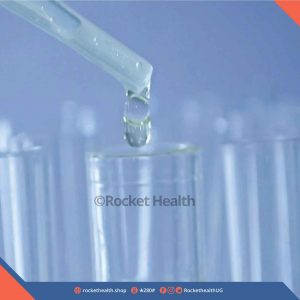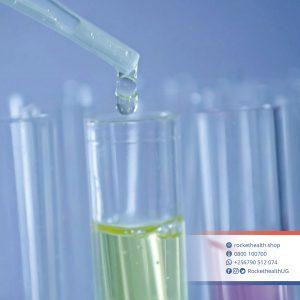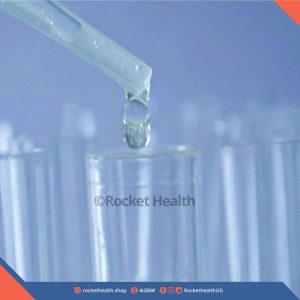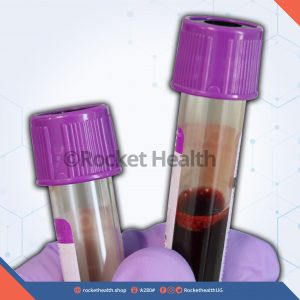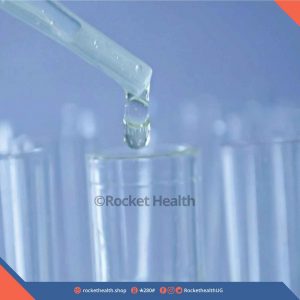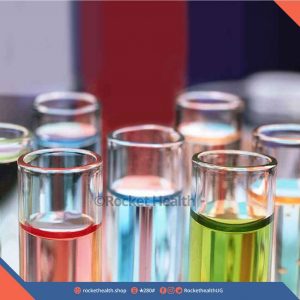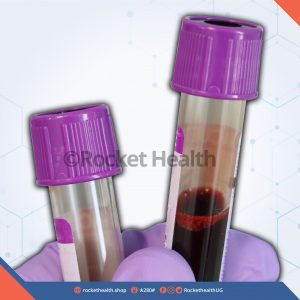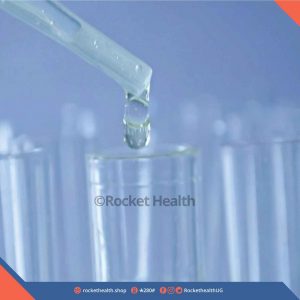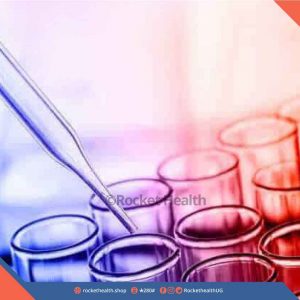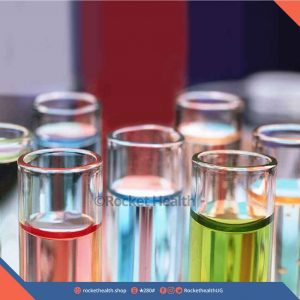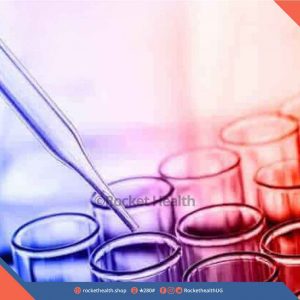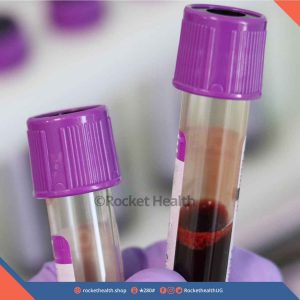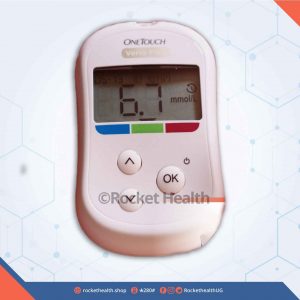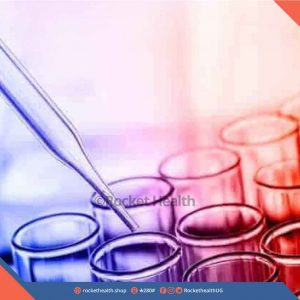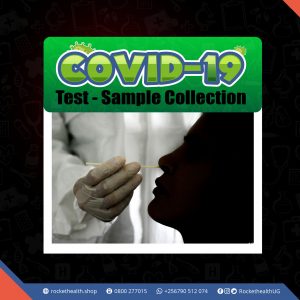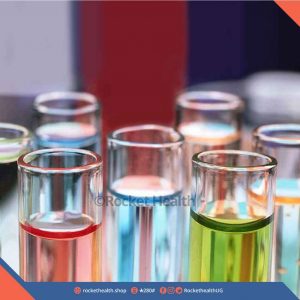No products in the cart.
FEACAL OCCULT BLOOD TEST
A test to check for the presence of blood in human stool (faeces) to detect any illness, injury or infections of the digestive canal.
Blood.
Avoid red meat, certain medications eg NSAIDS, aspirin and certain fruits and vegetables for atleast 7 days prior to the test as these could give false positive results. Avoid dental procedures atleast 3 days proir to the test.
It is designed to evaluate stool samples for hidden (“occult”) blood, meaning blood that cannot be seen with the naked eye.
UGX 25,000FEACAL OCCULT BLOOD TEST
UGX 25,000H.PYLORI ANTIGEN TEST
This test checks for antigens in stool or blood associated with H.pylori a bacteria that causes peptic ulcers . A positive results means you either are currently infected or have not been successfully treated.
Stool.
No specific patient preparation protocol required. Inform your doctor if you are on any medications or have any underlying medical conditions or allergies before undergoing this test. You need to stop using antibiotics, bismuth medicines, and proton-pump inhibitors 2 weeks before the test.
To diagnose an active infection with Helicobacter pylori (H. pylori). Helicobacter Pylori H. Pylori is a spiral-shaped bacterium and attacks the lining of the stomach. Due to its spiral shape, it penetrates into the stomach and gets protected by the mucus. Hence, immune cells are not able to reach them. This bacterium causes serious stomach problems like peptic ulcer, gastritis and most of the stomach ulcers. Antigens are the foreign substances that induce the immune responses to produce antibodies in the human body.
UGX 25,000H.PYLORI ANTIGEN TEST
UGX 25,000RHEUMATOID FACTOR
This blood test is used for the diagnosis of rheumatoid arthritis. High levels of rheumatoid factor in the blood are most often associated with autoimmune diseases, such as rheumatoid arthritis and Sjogren’s syndrome.
Blood.
No specific patient preparation protocol required. Inform your doctor if you are on any medications or have any underlying medical conditions or allergies before undergoing this test.
Rheumatoid factor (RF) is an autoantibody, an immunoglobulin M (IgM) protein that is produced by the body’s immune system. Autoantibodies attack a person’s own tissues, mistakenly identifying the tissue as “foreign.”
UGX 25,000RHEUMATOID FACTOR
UGX 25,000Reticulocyte Count
A reticulocyte test determines the number and/or percentage of reticulocytes( Immature Red Blood Cells) in the blood and is a reflection of recent bone marrow function or activity.
Blood.
No specific patient preparation protocol required. Inform the doctor if you are on any medications, have any allergies or underlying medical conditions before this test.
Red blood cells are produced in the bone marrow, where blood-forming (hematopoietic) stem cells differentiate and develop, eventually forming reticulocytes and finally becoming mature RBCs. A variety of diseases and conditions i.e hemorrhage, hemolysis, bone marrow disorder, kidney disease can affect the production of new RBCs and/or their survival, in addition to those conditions that may result in significant bleeding. These conditions may lead to a rise or drop in the number of RBCs and may affect the reticulocyte count.
UGX 25,000Reticulocyte Count
UGX 25,000PROSTATE SPECIFIC ANTIGEN (SCREENING)
This tests is used to screen for prostate cancer however, PSA levels are also affected by other things such as enlarges prostate, a urinary tract infection or recent ejaculation.
Blood.
No specific patient preparation protocol required.
Prostate specific antigen (PSA) is a protein produced primarily by cells in the prostate, a small gland that encircles the urethra in males and produces a fluid that makes up part of semen. Most of the PSA that the prostate produces is released into this fluid, but small amounts of it are also released into the bloodstream. Prostate-specific antigen test indicates the presence of prostate cancer, prostatitis or an enlarged prostate gland in men.
UGX 28,000PROSTATE SPECIFIC ANTIGEN (SCREENING)
UGX 28,000SERUM AMYLASE
This blood tests is used to check for disease in the pancreas.
Blood.
No specific patient preparation protocol required. Inform your doctor if you are on any medications or have any underlying medical conditions or allergies before undergoing this test.
Amylase is an enzyme and a special protein which is useful in digestion. It is produced primarily by the pancreas and the salivary glands to help digest carbohydrates. The pancreas is an organ present behind your stomach. When pancreas function is impaired or if there is an inflammation of pancreas too much or too little of amylase is released into your blood. Thus amylase blood test may detect any problems related to the pancreas.
UGX 28,000SERUM AMYLASE
UGX 28,000C-REACTIVE PROTEIN (CRP)
This test (C-reactive protein) helps to detect inflammation from acute infections, burns, trauma and many other conditions that would cause inflammation. It is also used to monitor severity of diseases in chronic conditions.
Blood.
No specific patient preparation protocol required. Inform your doctor if you are on any medications or have any underlying medical conditions or allergies before undergoing this test.
A CRP test measures the amount of CRP in the blood to detect inflammation due to acute conditions or to monitor the severity of disease in chronic conditions. C-reactive protein (CRP) is a protein made by the liver. CRP levels in the blood increase when there is a condition causing inflammation somewhere in the body. CRP is a non-specific indicator of inflammation and one of the most sensitive acute phase reactants. That means that it is released into the blood within a few hours after an injury, the start of an infection, or other cause of inflammation.
UGX 30,000C-REACTIVE PROTEIN (CRP)
UGX 30,000PERIPHERAL BLOOD FILM
This test is used to look for abnormalities in blood cells and enables diagnoses of many illnesses.
Blood.
No specific patient preparation protocol required. Inform your doctor if you are on any medications or have any underlying medical conditions or allergies before undergoing this test.
A blood film is a drop of blood spread thinly onto a glass slide that is then treated with a special stain and the blood cells on the slide are examined and evaluated.
UGX 30,000PERIPHERAL BLOOD FILM
UGX 30,000SERUM LIPASE
This blood test measures the level of lipase to check for acute pancreatitis.
Blood.
Inform your doctor if you are on any medications or have any underlying medical conditions or allergies before undergoing this test. Fasting of 8 hours is usually recommended before this test.
Lipase is produced by the pancreas in the body. It is a protein-based enzyme which plays a role in the digestion and breakdown of fats in the stomach. Impaired function of the pancreas due to injury or infections or diseases may lead to increased or decreased release of lipase from the pancreas. Lipase levels can be used to diagnose any disease/condition which may be affecting the function of pancreas.
UGX 30,000SERUM LIPASE
UGX 30,000URIC ACID
This blood test is used to check for gout and also monitor people undergoing chemotherapy or radiation treatment for cancer.
Blood.
No specific patient preparation protocol required. Inform your doctor if you are on any medications or have any underlying medical conditions or allergies before undergoing this test.
Uric acid is produced by the breakdown of purines. Purines are nitrogen-containing compounds found in the cells of the body, including our DNA. If too much uric acid is produced or not enough is removed, it can accumulate in the body, causing increased levels in the blood (hyperuricemia). The presence of excess uric acid can cause gout, a condition characterized by inflammation of the joints due to the formation of uric acid crystals in the joint (synovial) fluid. Excess uric acid can also be deposited in tissues such as the kidney, leading to kidney stones or kidney failure.
UGX 30,000URIC ACID
UGX 30,000Activated Partial Thromboplastin Test (PTT)
This is a screening test that helps check a person’s ability to properly form blood clots.
Blood.
None however, a high-fat meal before the blood draw may affect the test and should be avoided.
The partial thromboplastin time (PTT; also known as activated partial thromboplastin time (aPTT)) is a screening test that helps evaluate a person’s ability to appropriately form blood clots. It measures the number of seconds it takes for a clot to form in a sample of blood after substances (reagents) are added. A prolonged PTT means that the blood is taking too long to form a clot, this may be caused by conditions such as liver disease, vitamin K deficiency, or a coagulation factor deficiency (e.g., factor VII deficiency).
UGX 30,000Activated Partial Thromboplastin Test (PTT)
UGX 30,000Anti Streptolysin O Titre
This is a blood test that checks for effects of a recent streptococcus bacteria infection that may cause Rheumatic fever or kidney disease.
Blood.
You may be instructed not to eat six hours before the test. Inform the doctor if you are on any medications, have any allergies or underlying medical conditions before this test.
Antistreptolysin O (ASO) is an antibody targeted against streptolysin O, a toxic enzyme produced by group A Streptococcus bacteria. Group A Streptococcus (Streptococcus pyogenes) is the bacterium responsible for causing strep throat and a variety of other infections, including skin infections (pyoderma, impetigo, cellulitis). In most cases, strep infections are identified and treated with antibiotics, and the infections resolve. When a strep infection does not cause identifiable symptoms and goes untreated, or is treated ineffectively, complications namely rheumatic fever and a type of kidney disease (glomerulonephritis), can sometimes develop, especially in young children.
UGX 30,000Anti Streptolysin O Titre
UGX 30,000Prothrombin Time (INR)
The prothrombin time (PT) is a test that helps evaluate your body’s ability to appropriately form blood clots.
Blood.
None needed, however if you are receiving anticoagulant therapy, the blood sample should be collected before taking your daily dose.
A PT measures the number of seconds it takes for a clot to form in your sample of blood after substances (reagents) are added. The PT is often performed along with a partial thromboplastin time (PTT) and together they assess the amount and function of proteins called coagulation factors that are an important part of proper blood clot formation. For people taking warfarin, most laboratories report PT results that have been adjusted to the INR. A prolonged PT means that the blood is taking too long to form a clot, this may be caused by conditions such as liver disease, vitamin K deficiency, or a coagulation factor deficiency (e.g., factor VII deficiency).
UGX 35,000Prothrombin Time (INR)
UGX 35,000Serum Crag
Serum Crag is a test that detects cryptococcal antigen (abbreviated “CrAg”) in blood, an indicator of cryptococcal meningitis infection.
Blood.
No specific patient preparation protocol required. Inform the doctor if you are on any medications, have any allergies or underlying medical conditions before this test.
Cryptococcal infection usually presents as meningitis, which is a swelling of the meninges,the tissues that protect the brain and spinal cord. It is caused by C. neoformans which enters the human body via the respiratory tract. Elimination of C. neoformans is through cell mediated immunity, with the participation of neutrophils, macrophages and cytotoxic T lymphocytes. In the face of immunodeficiency(HIV infection, pregnancy etc), control of the infection fails, the fungus may then disseminate to the central nervous system or other organs. Definitive diagnosis is confirmed by the culture of specimens, often the cerebrospinal fluid (CSF) or blood, and sometimes in respiratory secretions The condition requires hospitalization and treatment with the intravenous (IV) antifungal medication amphotericin B.
UGX 35,000Serum Crag
UGX 35,000ORAL GLUCOSE TOLERANCE TEST
This test enables diagnosis of type 2 diabetes and gestational diabetes in pregnant women.
Blood.
Inform your doctor if you are on any medications, have any allergies or underlying medical conditions before this test. The individual undertaking the test should fast for 12 hours prior to the test and have a meal with at least 75 gms of carbohydrates. After the meal, the patient should not take any food before having the test. Take rest for two hours during the waiting period and do not work or strain yourself because exercise may sometimes increase the blood sugar levels. If you are pregnant then there is no need to fast.
Glucose is the primary energy source for the body’s cells and the only energy source for the brain and nervous system. A steady supply must be available for use, and a relatively constant level of glucose must be maintained in the blood Postprandial blood sugar test is used to measure the amount of glucose present in our blood, after two hours of eating. This test indicates how your body responds to sugar and starch after you have a meal.
UGX 40,000ORAL GLUCOSE TOLERANCE TEST
UGX 40,000Creatinine Kinase MB
This is a test to check for heart muscle damage or detect a recent heart attack.
Blood.
No specific patient preparation protocol required. Inform the doctor if you are on any medications, have any allergies or underlying medical conditions before this test
CK-MB is one of three forms (isoenzymes) of the enzyme creatine kinase (CK). CK is released from muscle cells and is detectable in the blood whenever there is muscle damage. The small amount of CK that is normally in the blood is primarily CK-MM. CK-BB almost never gets into the blood, and CK-MB will typically only be present in significant amounts when the heart is damaged. A CK test measures the total level but does not distinguish between the three isoenzymes. When there is an increased amount of CK present in the blood, the CK-MB test can be used to determine whether it is due to heart damage or is more likely to be related to skeletal muscle injury.
UGX 40,000Creatinine Kinase MB
UGX 40,000COVID-19 Antigen Test (Rapid) in Kampala
This is a rapid test used to screen for Covid 19 infection when experiencing the typical Covid19 symptoms such as runny nose, headaches, general weakness, sore throat, chest pain among others. Test results will be ready in 6 hours.
Rocket Health doctors will call to share results and give medical advise.
If one tests positive, one may choose to enroll onto our COVID-19 home-based care program.
UGX 40,000COVID-19 Antigen Test (Rapid) in Kampala
UGX 40,000BLOOD PREGNANCY TEST (HCG QUANTITATIVE)
A blood test that measures the quantity of hCG (human chorionic gonadotriphin) hormone in your blood and is used to confirm pregnancy.
Blood.
No specific patient preparation protocol required. Inform your doctor if you are on any medications or have any underlying medical conditions or allergies before undergoing this test.
Human chorionic gonadotropin (hCG) is a hormone produced by the placenta of a pregnant woman. HCG can be detected in blood samples after 8-11 days of conception. The levels of HCG doubles continuously for every 48-72 hours and the peak levels can be observed during 8-11 weeks after conception.
UGX 45,000BLOOD PREGNANCY TEST (HCG QUANTITATIVE)
UGX 45,000LIPID PROFILE (Blood Cholestrol test)
This is a panel of blood tests used to measure the level of specific lipids like cholesterol, triglycerides in blood. Results can show approximate risk of heart disease.
Blood.
Inform your doctor if you are on any medications or have any underlying medical conditions or allergies before undergoing this test. For this test, fasting for at least 8 to 12 hours is recommended.
Lipids are a group of fats and fat-like substances that are important constituents of cells and sources of energy. Cholesterol and triglycerides are the two important lipids. Cholesterol and triglycerides are transported are circulated into the blood through lipoprotein particles. High-density lipoproteins (HDL) are considered as good cholesterol and low-density lipoproteins (LDL) is considered as bad cholesterol. High-density cholesterol carries cholesterol to the liver from various parts of your body. LDL gets attached to the walls of arteries and clogs them. This leads to a condition called atherosclerosis.
UGX 45,000LIPID PROFILE (Blood Cholestrol test)
UGX 45,000

